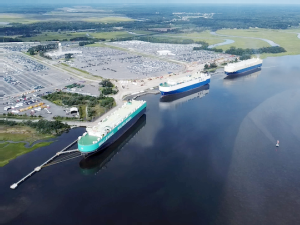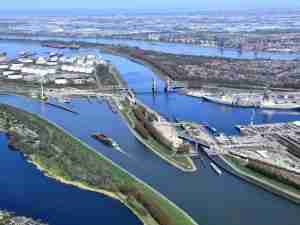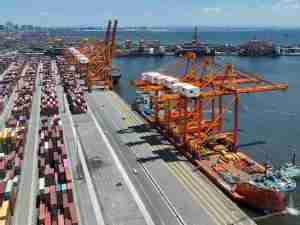Truckers carry on Brazil strike despite government offers, threats
By: Reuters | Feb 26 2015 at 06:24 PM | Ports & Terminals
Brazilian truckers continued a nine-day-old strike on Thursday, unmoved by an initial government offer to meet some of their demands or by threats of hefty fines.
The strike, which spread from a few road blocks on Feb. 18 in the main soybean state of Mato Grosso to 91 blockades across nine states on Thursday, has caused lines at filling stations and spoiled milk, fruit and vegetables unable to reach supermarkets.
After negotiations with some trucker groups fizzled out on Wednesday, the government offered a year of free financing for trucks and to help truckers and transport companies create a framework for setting freight rates.
Truckers largely ignored the offer and held their ground, even after Justice Minister Jose Eduardo Cardozo threatened on Thursday to impose fines of 5,000 to 10,000 reais ($1,700-$3,400) per hour on truckers who illegally blocked roads.
“We’ve got mountains of debt - a little more doesn’t change anything much,” Ivar Luiz Schmidt, who is one of the leaders organizing the strike, said in response.
Truckers’ primary demand is for a reduction in diesel prices, which are roughly 50 percent above international levels but the government is unwilling to lower those prices.
The sector is struggling with a surge in the number of trucks on the road in recent years and falling prices for bulk commodities such as sugar, corn and soybeans, which have lowered payments to truckers.
Local logistic companies, such as NTC&Logistica, say several firms will likely close in the near future in order to restore balance to the troubled sector.
Although the flow of trucks was normal in Brazil’s richest state of Sao Paulo, including at the country’s main port of Santos, other important export hubs further south were affected.
Paranagua, the second-largest grains exporting port, said it had soybeans in silos to continue loading ships until March 2.
Another port, Rio Grande, said operations were lightly affected but feared problems would grow over the weekend.
The Independent Transporters Association (CNTA), one of the entities representing truckers, said it would recommend truckers allow delivery of food and fuel leading up to the next round of talks with the government on March 10.
Members of the National Transport Command, which is led by Schmidt and was excluded from negotiations on Wednesday, were not willing to call off the strike and prepared to face “the ultimate consequences.”
“We weren’t in the negotiations because we don’t represent any union or federation. We abhor those guys. They don’t represent the sector,” said Schmidt. (Additional reporting by Priscila Jordão and Leonardo Goy; Writing by Reese Ewing; Editing by Chris Reese)










